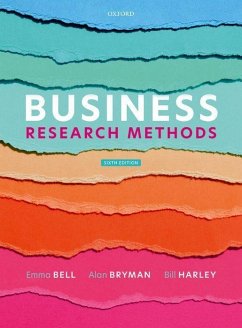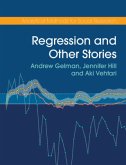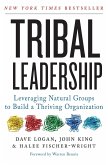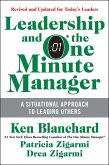- Broschiertes Buch
- Merkliste
- Auf die Merkliste
- Bewerten Bewerten
- Teilen
- Produkt teilen
- Produkterinnerung
- Produkterinnerung
The clearest, most relevant guide, written specifically to engage business students taking research methods courses or completing a research project. The sixth edition offers extensively-revised global examples throughout, as well as unique interviews with students and educators providing invaluable real-world insights and advice.
Andere Kunden interessierten sich auch für
![Regression and Other Stories Regression and Other Stories]() Andrew GelmanRegression and Other Stories58,99 €
Andrew GelmanRegression and Other Stories58,99 €![Tribal Leadership Tribal Leadership]() Dave LoganTribal Leadership12,99 €
Dave LoganTribal Leadership12,99 €![Turning the Flywheel Turning the Flywheel]() Jim CollinsTurning the Flywheel10,99 €
Jim CollinsTurning the Flywheel10,99 €![Good to Great Good to Great]() Jim CollinsGood to Great21,99 €
Jim CollinsGood to Great21,99 €![Good to Great Good to Great]() Jim CollinsGood to Great23,99 €
Jim CollinsGood to Great23,99 €![Leveraging Knowledge Communication for Innovation Leveraging Knowledge Communication for Innovation]() Tobias Müller-ProthmannLeveraging Knowledge Communication for Innovation94,35 €
Tobias Müller-ProthmannLeveraging Knowledge Communication for Innovation94,35 €![Leadership and the One Minute Manager Leadership and the One Minute Manager]() Ken BlanchardLeadership and the One Minute Manager8,99 €
Ken BlanchardLeadership and the One Minute Manager8,99 €-
-
-
The clearest, most relevant guide, written specifically to engage business students taking research methods courses or completing a research project. The sixth edition offers extensively-revised global examples throughout, as well as unique interviews with students and educators providing invaluable real-world insights and advice.
Hinweis: Dieser Artikel kann nur an eine deutsche Lieferadresse ausgeliefert werden.
Hinweis: Dieser Artikel kann nur an eine deutsche Lieferadresse ausgeliefert werden.
Produktdetails
- Produktdetails
- Verlag: Oxford University Press
- 6. Auflage
- Erscheinungstermin: 30. März 2022
- Englisch
- Abmessung: 265mm x 196mm x 31mm
- Gewicht: 1474g
- ISBN-13: 9780198869443
- ISBN-10: 0198869444
- Artikelnr.: 62352592
- Herstellerkennzeichnung
- Libri GmbH
- Europaallee 1
- 36244 Bad Hersfeld
- gpsr@libri.de
- Verlag: Oxford University Press
- 6. Auflage
- Erscheinungstermin: 30. März 2022
- Englisch
- Abmessung: 265mm x 196mm x 31mm
- Gewicht: 1474g
- ISBN-13: 9780198869443
- ISBN-10: 0198869444
- Artikelnr.: 62352592
- Herstellerkennzeichnung
- Libri GmbH
- Europaallee 1
- 36244 Bad Hersfeld
- gpsr@libri.de
Emma Bell is Professor of Organisation Studies at the Open University, UK. Her research explores culture, belief, and materiality in organizations using qualitative methods of inquiry and has been published in journals including Organization Studies, Human Relations, Academy of Management Learning & Education, Organization, Management Learning and the British Journal of Management. Emma is currently joint Vice-Chair Research and Publications of the British Academy of Management and a Fellow of the Academy of Social Sciences. Alan Bryman was Professor of Organizational and Social Research at the University of Leicester from 2005 to 2017. Prior to this he was Professor of Social Research at Loughborough University for thirty-one years. His main research interests were in leadership, especially in higher education, research methods (particularly mixed methods research), and the 'Disneyization' and 'McDonaldization' of modern society. Alan was also the author of the bestselling textbook Bryman's Social Research Methods (Oxford University Press, 2021) as well as contributing to a range of leading journals: he was an extraordinarily well-cited and internationally-renowned social scientist. Bill Harley is Professor of Management in the Department of Management and Marketing at The University of Melbourne. Bill's academic research has been motivated by an abiding interest in the centrality of work to human life. His work has been published in journals including the British Journal of Industrial Relations, Journal of Management Studies, Academy of Management Learning & Education Industrial Relations, and Work Employment and Society . Bill was previously General Editor of Journal of Management Studies and is currently on the editorial boards of the same journal, as well as Academy of Management Learning & Education, Journal of Applied Behavioral Sciences and Human Relations. He is Chair of the Society for the Advancement of Management Studies.
Part 1 - The research process
1: The nature and process of business research
2: Business research strategies
3: Research designs
4: Planning a research project and developing research questions
5: Getting started: reviewing the literature
6: Ethics in business research
7: Writing up business research
Part 2 - Quantitative research
8: The nature of quantitative research
9: Sampling in quantitative research
10: Structured interviewing
11: Self-completion questionnaires
12: Asking questions
13: Quantitative research using naturally occurring data
14: Secondary analysis and official statistics
15: Quantitative data analysis: descriptive statistics
16: Quantitative analysis: inferential statistics
Part 3 - Qualitative research
17: The nature of qualitative research
18: Sampling in qualitative research
19: Ethnography and participant observation
20: Interviewing in qualitative research
21: Focus groups
22: Language in qualitative research
23: Documentary data
24: Visual qualitative research
25: Qualitative data analysis
Part 4 - Mixed methods research
26: Breaking down the quantitative/qualitative divide
27: Mixed methods research: combining quantitative and qualitative research
1: The nature and process of business research
2: Business research strategies
3: Research designs
4: Planning a research project and developing research questions
5: Getting started: reviewing the literature
6: Ethics in business research
7: Writing up business research
Part 2 - Quantitative research
8: The nature of quantitative research
9: Sampling in quantitative research
10: Structured interviewing
11: Self-completion questionnaires
12: Asking questions
13: Quantitative research using naturally occurring data
14: Secondary analysis and official statistics
15: Quantitative data analysis: descriptive statistics
16: Quantitative analysis: inferential statistics
Part 3 - Qualitative research
17: The nature of qualitative research
18: Sampling in qualitative research
19: Ethnography and participant observation
20: Interviewing in qualitative research
21: Focus groups
22: Language in qualitative research
23: Documentary data
24: Visual qualitative research
25: Qualitative data analysis
Part 4 - Mixed methods research
26: Breaking down the quantitative/qualitative divide
27: Mixed methods research: combining quantitative and qualitative research
Part 1 - The research process
1: The nature and process of business research
2: Business research strategies
3: Research designs
4: Planning a research project and developing research questions
5: Getting started: reviewing the literature
6: Ethics in business research
7: Writing up business research
Part 2 - Quantitative research
8: The nature of quantitative research
9: Sampling in quantitative research
10: Structured interviewing
11: Self-completion questionnaires
12: Asking questions
13: Quantitative research using naturally occurring data
14: Secondary analysis and official statistics
15: Quantitative data analysis: descriptive statistics
16: Quantitative analysis: inferential statistics
Part 3 - Qualitative research
17: The nature of qualitative research
18: Sampling in qualitative research
19: Ethnography and participant observation
20: Interviewing in qualitative research
21: Focus groups
22: Language in qualitative research
23: Documentary data
24: Visual qualitative research
25: Qualitative data analysis
Part 4 - Mixed methods research
26: Breaking down the quantitative/qualitative divide
27: Mixed methods research: combining quantitative and qualitative research
1: The nature and process of business research
2: Business research strategies
3: Research designs
4: Planning a research project and developing research questions
5: Getting started: reviewing the literature
6: Ethics in business research
7: Writing up business research
Part 2 - Quantitative research
8: The nature of quantitative research
9: Sampling in quantitative research
10: Structured interviewing
11: Self-completion questionnaires
12: Asking questions
13: Quantitative research using naturally occurring data
14: Secondary analysis and official statistics
15: Quantitative data analysis: descriptive statistics
16: Quantitative analysis: inferential statistics
Part 3 - Qualitative research
17: The nature of qualitative research
18: Sampling in qualitative research
19: Ethnography and participant observation
20: Interviewing in qualitative research
21: Focus groups
22: Language in qualitative research
23: Documentary data
24: Visual qualitative research
25: Qualitative data analysis
Part 4 - Mixed methods research
26: Breaking down the quantitative/qualitative divide
27: Mixed methods research: combining quantitative and qualitative research








